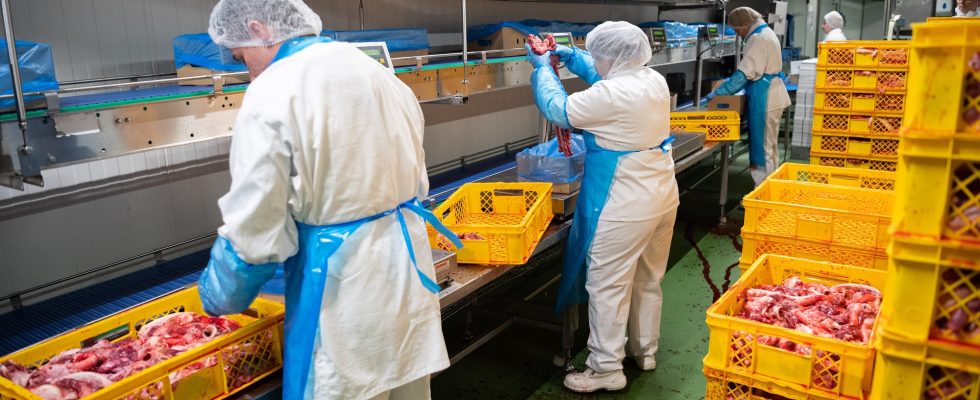Exclusive
Status: 04/18/2023 2:00 p.m
After research by Report Mainz a new system of temporary worker exploitation has been established along the border with the Netherlands. Most affected are migrant workers from Eastern Europe.
Unworthy living conditions and exploitative working conditions – problems that seemed to have ended in Germany since the introduction of the ban on factory contracts and temporary work in the meat industry in 2021. However, a new system of exploitation has established itself along the border with the Netherlands. Recruiters from abroad have bought and rented real estate on a large scale in North Rhine-Westphalian cities. There they accommodate the workers. However, these do not work in Germany, but in the meat industry in the Netherlands.
loopholes in the legal system
The temporary workers work there for the recruiters. Although the temporary workers live in Germany, the ban on temporary work in the meat industry in Germany does not apply. By being accommodated in Germany, the recruiters can escape the strict controls of Dutch occupational safety. The result: desolate living conditions with horrendous rents and arbitrary evictions.
“According to our observations, the temporary work agencies make the most money with accommodation and transport,” says Pagonis Pagonakis from the DGB’s “Fair freedom of movement for workers” project. “The workers pay an average of 350 to 400 euros for a mattress or cot. Then they are deducted another 50 euros for transport costs for the trip to the factories. This is how the temporary work agencies make a huge profit.”
Workers are at the mercy of temporary employment agencies
Report Mainz there are Dutch employment contracts, according to which rent and transport costs are deducted directly from wages. Further research shows that temporary workers often have no written rental contracts.
Sascha Ruelfs from the aid organization “Goch helps” near the border says that there are always homeless temporary workers in the region because losing their job would result in immediate eviction from the shelter. Most of the workers don’t know their rights, are massively intimidated and some are “fear of dying,” he says.
Like the Romanian worker Eugen*, den Report Mainz shortly before leaving for Romania in the German border town of Goch: “I was ill and couldn’t work. My coordinator said I should come anyway, but I couldn’t. Then he said: ‘Pack your things’. He threatened me, if I don’t run away, he’ll kill me with his own hands. I asked him where should I go? It was night and I had no money.”
The workers are exposed to a brutal arbitrary system by their employers, says the DGB expert Pagonakis.
New law without force
The responsible authorities in Germany took action against unworthy and exploitative accommodations with several raids last year. Finally, the North Rhine-Westphalian state government even enacted a new law: the so-called Housing Strengthening Act. According to this, the authorities should be informed if living space is used as “accommodation”, for example for temporary workers.
On request from Report Mainz A spokesman at the responsible Ministry for Homeland, Municipal Affairs, Building and Digitization of North Rhine-Westphalia conceded how it was proceeding against the current abuses in the border area:
Due to a lack of knowledge about the actual residents, the competent authorities in North Rhine-Westphalia […] neither ensure that fire protection regulations, the regulations of the NRW building regulations, the North Rhine-Westphalia Housing Strengthening Act or the requirements for accommodation under the Occupational Health and Safety Act are complied with.
Lawyer Klaus Körner from the “Dignity and Justice” association advises temporary workers on a voluntary basis: “We have the criminal law limit of usury in rents here. Penalties range from six months to ten years.” But there are usually no legal proceedings because the workers would not file a complaint: “People are prevented from doing so, if necessary by force.” The fight against the exploitation of temporary workers in the meat industry faces new, cross-border challenges in 2023.
* Name changed by editors

